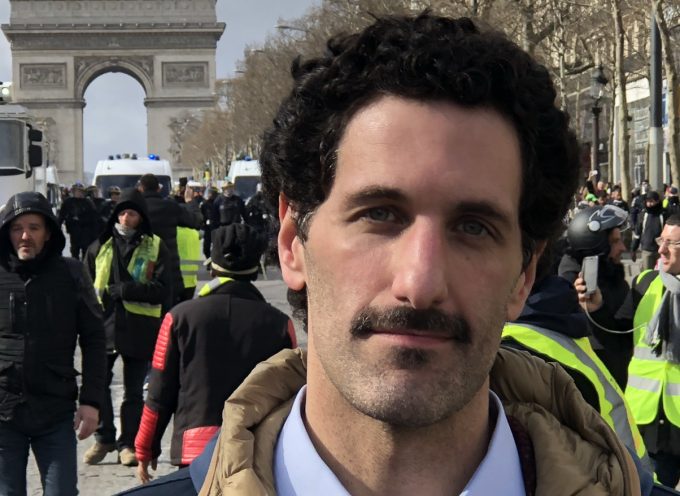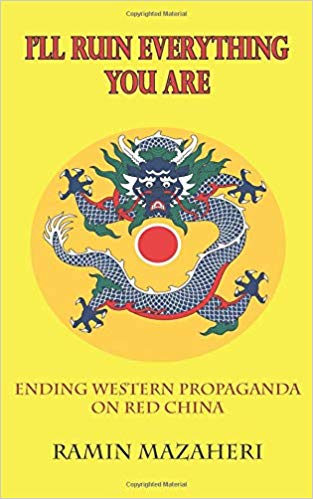Republished from the Saker blog
Well, you can end a Cultural Revolution without being a counter-revolutionary, I suppose, but not if you do what China did: reverse many of the progressive policies of the Cultural Revolution, and often without the People's consent.
This series has examined the ground-breaking investigative & scholarly work The Unknown Cultural Revolution: Life and Change in a Chinese Village, by Dongping Han, a former Chinese villager himself. Han hailed from and studied rural Jimo County, interviewing hundreds of locals about the Cultural Revolution (CR) and poring over local historical records. Han was kind enough to write the forward to my new book, I'll Ruin Everything You Are: Ending Western Propaganda on Red China.
Even more than Mao and the Great Leap Forward, Western Propaganda on the CR truly turns black into white. Perhaps no political event and certainly no successful political event is so misunderstood, negated and shrouded in misinformation and ignorance" thus this 8-part series!
What Han demonstrates is that the CR was the first effort in Chinese history to empower the average peasant against Chinese officialdom, and the results were spectacular. I keep referring to this handy mathematical summary of mine from Part 1: "You just read about 2 times more food and 2 times more money for the average Chinese person, 14 times more horsepower (which equates to 140 times manpower), 50 times more industrial jobs, 30 times more schools and 10 times more teachers during the CR decade in rural areas. "
A rededication to socialism brought more than just economic virtues, but moral ones as well, per Han: "The social vices like official corruption, prostitution, drug abuse, fake products and others that plague Chinese society today were completely absent at the end of the Cultural Revolution."
But despite the introduction of the Industrial Revolution to China's rural areas, despite the exponential increases in educational empowerment, despite the fact that the CR represented the first-ever effort to democratically empower rural Chinese against officialdom, despite a decade of generating the irreplaceable human capital upon which China's 2019 success obviously rests" with the death of Mao China famously turned its back on the CR.
Let's see what happened, and then discuss why it was a counter-revolution.
CR officials get ousted: meet the new boss, who truly was the old boss
After Mao's death rebel leaders began to be rounded up. (As I explained in Part 5, Red Guards ain't all red: Who fought whom in China's Cultural Revolution?: China had, per Han, the "Rebel Red Guard Faction", which were spontaneous, grassroots "mass associations", pitted against the "Loyalist Red Guard Faction", which were status quo-defending, established, "mass organisations".)From late 1977 to early 1979 Jimo County saw purges, with few rebel leaders keeping their posts.
Who was restored? Those whom held office before the CR.
That was no quick feat, because the CR had been supported by the center and left of the Chinese political spectrum. But by 1983, "Every government office, school, factory and village was ordered to purge former rank-and-file rebels. Officials who had lost their positions at the beginning of the Cultural Revolution brought charges against individual rebels against whom they held grudges." Han relates this was a prelude to a larger "official gouge" in rural areas in the 1980s and 1990s.
Selfless asceticism from Party officials abiding by the codes of conduct relayed in Mao's Little Red Book and working in the fields were no longer expected. Corruption and bribery increased, children of officials got cushy jobs instead of spreading night soil, the right to use big character posters (China's version of a free press, in no exaggeration) was excised from the constitution, Deng's "manger responsibility" system which gave them the authority to determine salaries was installed.
All of that is obviously contrary to the values of the CR and in line with many Western values: no wonder the West hates the CR!
Despite these changes, to sweepingly say that "China abandoned socialism after Mao" is still nonsense because the CCP remained the vanguard party charged with protecting the 1949 revolution; China's political system did not revert to liberal (bourgeois) democracy; China did not engage in imperialistic wars and etc. and etc. and etc.
(Note: You can view every article as one long page if you sign up as an Advocate Member, or higher).






